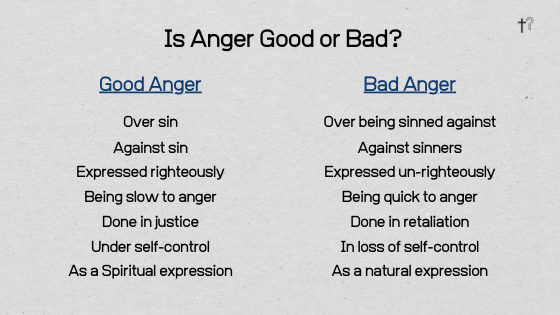How could a loving God get angry?
Anger is an emotional arousal caused by something that displeases us.
In itself, anger is not a sin, because even God can be angry (Deut. 9:8, 20; Ps. 2:12). Several times in the Old Testament the phrase appears, “the anger of the Lord” (Num. 25:4; Jer. 4:8; 12:13). However, this divine anger is fundamentally different from human anger.
God’s anger arises from His holiness and righteousness and is always a just and proportionate response to sin and injustice.
We must first understand that God’s anger over sin is not the same as our momentary outbursts of anger on some days.
The scriptures also point out that God’s attributes are fully operational at all times, which means He is angry at sin at all times. Additionally, all His other attributes (love, mercy, grace, etc.) are in operation at the same time.
There is also a steady reality to God’s wrath; we shouldn’t think of Him as someone who gets angry on certain mornings and drowns an entire nation. It’s a common misconception that God’s anger implies a loss of control or moral flaw. In truth, His anger is an expression of His holy opposition to all that is sinful and unjust.
Furthermore, God’s anger is not sinful, but rather a manifestation of His holiness and righteousness. His anger is directed at everything that violates His holiness and pollutes His universe.
Thus, anger itself isn’t sinful; it depends on what it’s for, where it’s directed, and/or what its object is. Our perfect moral example, Jesus, was angry at sin, unbelief, and hypocrisy.
The problem with human anger is that even in the proper sense (for example, at sin), it is easy to carry it too far that we sin in our anger, and unlike God, who is “slow to anger,” we are often quick to anger. Unlike human anger, which can be impulsive and unjust, God’s anger is perfectly balanced and never arises from selfish motives or lack of control.
Here is a breakdown of the types of good and bad anger to help you better discern where you stand when your emotions take over.
What about Jesus’ anger when He cleared the temple of the moneychangers?
Yes, Jesus certainly showed great emotion and anger when He chases those who were making the house of prayer into a den of thieves (Matthew 21:12-13; Mark 11:15-18; John 2:13-22).
However, Jesus’ anger was characterized by several key aspects and something we can learn from:
-
-
- Right Motivation: Jesus’ anger was never selfish or petty. It arose from a place of righteousness, not from personal slights or trivial disagreements.
- Proper Focus: His anger was directed not at God or human weaknesses, but at sinful actions and genuine injustice.
- Proper supplement: In Mark 3:5, we see that Jesus’ anger was coupled with sorrow, particularly over the Pharisees’ lack of faith. His anger was rooted in love and concern for their spiritual well-being, not in hatred.
- Proper Control: Jesus was always in control of His emotions. His actions, even when angry, were deliberate and sinless, like the cleansing of the temple.
- Proper duration: Jesus did not let anger fester into bitterness or grudges. He addressed issues promptly and righteously, moving on without harboring resentment.
- Proper result: Jesus’ anger always resulted in actions aligned with God’s will. It was regulated by God’s Word and aimed at fulfilling His divine purposes.
-
In contrast, human anger often fails in these areas, lacking proper control, focus, or outcome. As James 1:19-20 instructs, we should be “quick to listen, slow to speak and slow to become angry,” because human anger does not produce Godly righteousness. Jesus’ anger, on the other hand, was an expression of divine justice and concern for God’s will.

